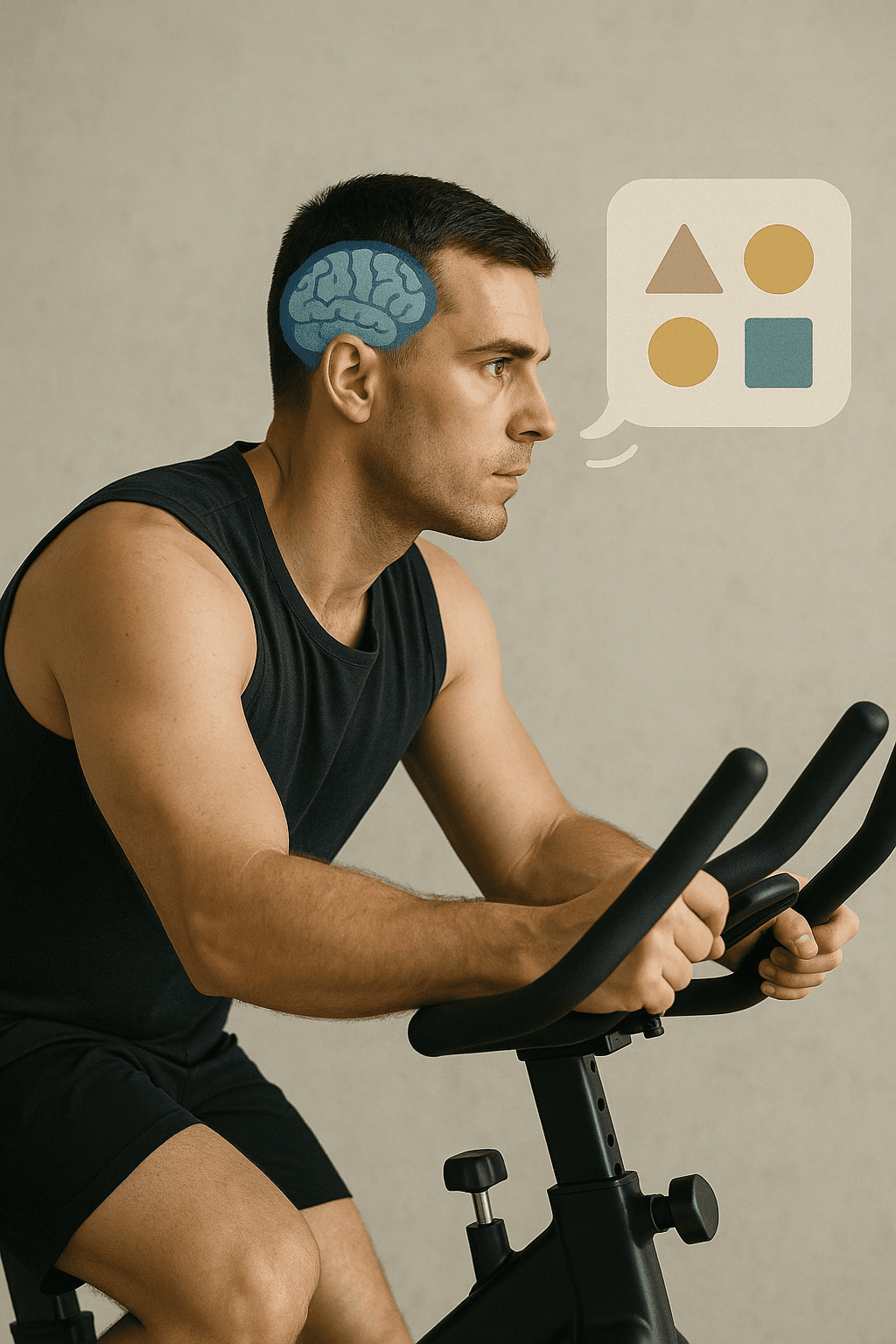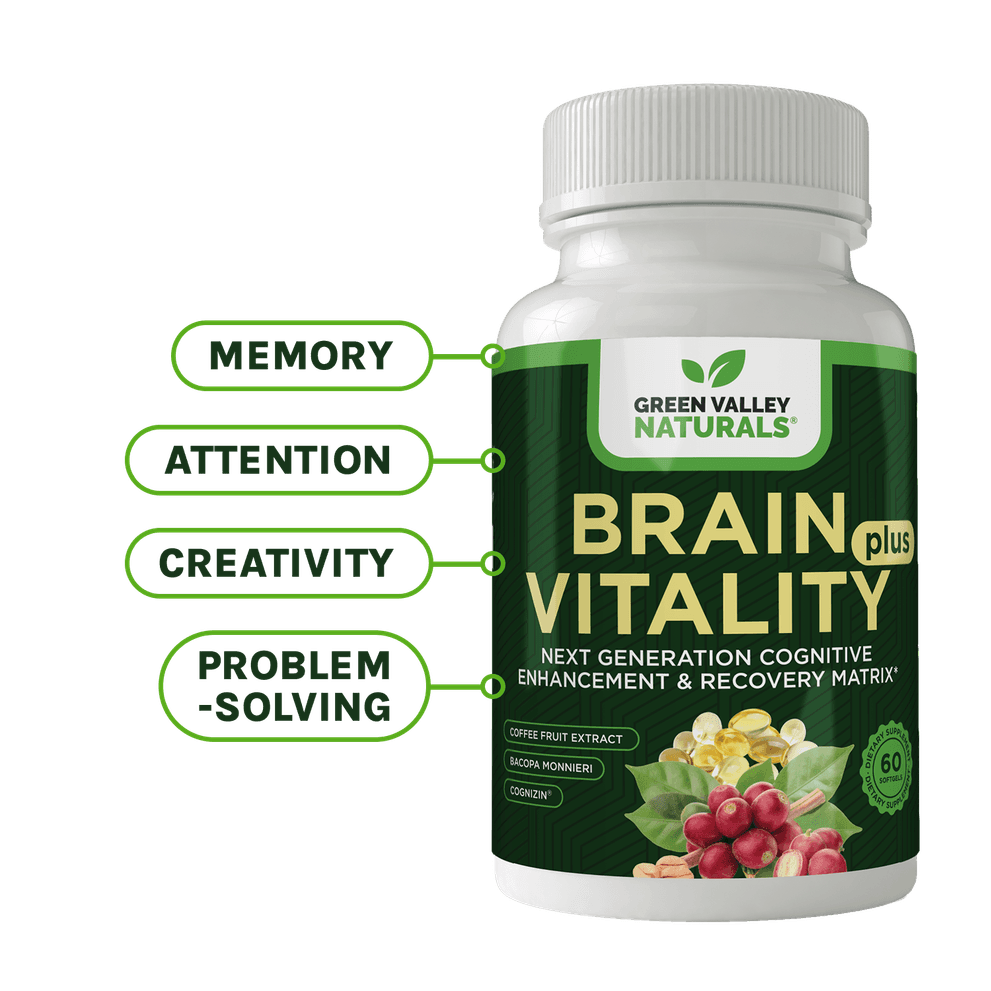
The winners of the annual USA Memory Championship are never seniors (although many take part). That’s because, as with physical prowess, cognitive abilities decline with age. Is there anything we can do about this? Absolutely.
In addition to supplying your brain with the nutrients it needs, the latest research suggests that you can help maintain your mental sharpness with brain endurance training (BET). What is BET, and how can you use it? Let's take a closer look...
Key Takeaways
Dual Benefits: BET outperforms exercise alone, enhancing both cognitive and physical performance.
Healthy Aging Tool: BET improves memory, endurance, and balance, and may lower the risk of falls in older adults.
Mental Fatigue Resilience: By training the brain under stress, BET builds toughness against cognitive decline and physical exhaustion.
What is Brain Endurance Training?
We already know that exercise strengthens the body and sharpens memory, while brain training alone can reduce dementia risk by nearly half. But what happens when you combine the two?
That’s where Brain Endurance Training comes in. BET is an innovative approach that blends traditional physical training with mentally fatiguing cognitive tasks to boost both cognitive and physical performance. Unlike standard exercise routines, BET is designed to enhance brain endurance by challenging the mind with cognitive training before, during, or after a physical training session. This unique combination helps reduce the impact of mental fatigue, which leads to improved endurance performance overall.
Why Training Your Brain and Body Together Supercharges Performance
Physical exercise can revive fading memories and brain training can lower dementia risk by up to 45%. The combination of both is BET. The program was originally developed for elite athletes and endurance athletes to improve both mental and physical performance. It is grounded in sports psychology and sports medicine, incorporating various physical exercises and physical exertion to enhance endurance performance.
Multiple studies show BET is superior to physical exercise alone in supporting brain function. For instance, one published last year found that three 90-minute BET sessions per week for 20 weeks improved cognitive function in seniors with mild cognitive impairment. The extent of improvements was better than exercise alone.
Another trial found BET improved cognitive performance and reduced the risk of falls in older adults. Up until recently, nearly all studies focused on the effect of BET on cognition rather than its physical benefits. The latest study examined both.
For the trial, 24 healthy, sedentary women aged 65 to 78 were randomly assigned to either the BET group, exercise training group, or a control group (no intervention).
The first two groups each completed three identical 45-minute training sessions per week for eight weeks. Each session included 20 minutes of resistance training and 25 minutes of endurance training. Additionally, the BET group completed a 20-minute cognitive task before exercising. This protocol involved adding cognitive tasks before physical activity, representing a form of prior brain endurance training. Participants completed both cognitive and physical tasks during their training sessions, and some sessions involved concurrent BET, where a mentally fatiguing cognitive task was performed simultaneously with physical exercises.
Before the study began, all three groups completed a series of cognitive and physical tests. This was repeated at the end of the study. During the testing protocol, participants performed endurance tasks and cognitive tasks of varying task difficulty, and perceived effort was measured during these activities. Researchers also tested cognitive and physical performance when fresh and fatigued (before and after a 30-minute cognitive task) at weeks 0 (pre-test), 4 (mid-test), 8 (post-test), and 12 (follow-up test).
Researchers made these key findings:
BET group:
Cognitive performance increased 7.8% after exercise.
Physical performance improved by 29.9%.
The BET group outperformed the exercise and control groups in both cognitive and physical tests, as shown when the post-test was compared to the pre-test.
Exercise group:
Cognitive performance increased 4.5% and physical performance improved by 22.4%.
The results demonstrate BET not only boosts cognition more than exercise but also improves physical function more than exercise.
Better Balance, Fewer Falls
The researchers wrote in the journal Psychology of Sport and Exercise that “BET is the most effective training method to improve the cognitive and physical performance of older adults. We also found that BET improved fatigue resilience and performance when the tasks were performed following a long and demanding cognitive task.
“Accordingly, BET can be recommended for use by older adults to improve performance and tackle the detrimental effects of mental fatigue on behavior, with the likely benefits being improved balance control and less incidence of falls and accidents.”
Sports scientist and senior author Professor Chris Ring believes their findings “could have significant implications for improving healthspan.”
He admitted the results need to be confirmed in a much larger group containing both men and women, but added that “these promising initial findings show we should do more to encourage older people to engage in BET to improve brain and body activities.”
How Can You Use BET?
During a typical BET session, participants complete a series of cognitive and physical tasks. The cognitive tasks are specifically chosen to increase cognitive demands and test executive function, such as attention, inhibition, and cognitive flexibility.
Common examples include the Stroop task and the AX Continuous Performance Test (AX-CPT), both of which require sustained focus and quick reaction time. By incorporating these mentally demanding tasks into physical training, BET enhances the brain’s ability to handle cognitive and physical challenges simultaneously.
BET has been successfully applied in endurance sports like cycling and running, and is gaining attention in rehabilitation sciences for its potential to improve physical fitness and cognitive function in various populations. While further evidence from future studies is needed to fully understand the long-term effects of BET, current findings suggest that this new training method offers a powerful way to improve endurance exercise performance and resilience to mental fatigue and poor cognitive function.
Brain Endurance Training 5-Step Action Plan
Set Your Foundation
Baseline Check: Start with a simple fitness routine you’re comfortable with (walking, cycling, resistance bands, light weights).
Cognitive Warm-up: Pick a few brain games (apps, Stroop test online, memory recall, math problems) that challenge focus and reaction.
Goal Setting: Decide whether your primary aim is brain sharpness, physical endurance, or both.
Establish a Weekly Schedule
Aim for 2–3 BET sessions per week, each lasting 45–60 minutes.
Sample Structure:
Warm-up: 5–10 minutes of light movement (walking, cycling, dynamic stretches).
Cognitive Task: 10–15 minutes of challenging brain activity (e.g., Stroop test, memory recall, number puzzles).
Physical Training (with Cognitive Load):
Perform endurance or strength exercises while simultaneously engaging in mental tasks.
Examples:
Walking on treadmill + naming words in a category.
Cycling + solving mental math.
Weight circuits + recalling a sequence of numbers.
Cool Down: 5–10 minutes of stretching, breathing, or meditation.
Increase Your Effort
Weeks 1–2: Cognitive tasks before physical exercise (sequential BET).
Weeks 3–4: Introduce simultaneous BET (e.g., memory games while cycling).
Week 5 onward: Increase complexity of brain tasks (faster reaction tasks, dual tasks like recalling sequences while performing balance work).
Sample Exercises
Cognitive Tasks: Stroop task, memory recall lists, reaction-time apps, simple math problems, word recall games.
Physical Tasks: Brisk walking, cycling, rowing, bodyweight circuits (squats, push-ups, lunges), resistance bands, light weights.
Combined Example: Do a set of squats while spelling a word backwards or recall 7 grocery items while walking.
Track Your Progress
Cognitive Gains: Use a memory or focus app weekly to track improvements.
Physical Gains: Track endurance (time before fatigue), strength (reps/sets), and balance (e.g., fewer stumbles).
Perceived Exertion: Rate your mental and physical fatigue after each session to see how resilience improves.
Recovery & Support
Rest days are essential for brain and muscle recovery.
Support your BET with hydration, sleep, and nutrition (especially omega-3s, B vitamins, magnesium for brain health).
Consider mindfulness or meditation for added cognitive resilience.
Summary
Brain Endurance Training (BET) is a groundbreaking approach that combines physical exercise with challenging cognitive tasks to strengthen both mind and body. Originally designed for elite athletes, BET is now showing remarkable benefits for older adults, improving memory, focus, endurance, and balance. Studies reveal BET outperforms exercise alone, boosting cognition by nearly 8% and physical performance by almost 30% in seniors. By building resilience against mental fatigue and sharpening executive functions, BET may reduce fall risk, enhance healthspan, and offer a powerful new tool for aging well.
Frequently Asked Questions
What is Brain Endurance Training (BET)?
BET is a method that combines physical exercise with cognitive tasks to enhance brain endurance, memory, and physical performance.
How does BET differ from regular exercise?
Unlike standard exercise, BET includes mental tasks like memory games or reaction tests before or during workouts, training the brain to handle fatigue.
Who can benefit from BET?
While developed for athletes, BET is especially effective for older adults, helping improve cognition, endurance, and reducing fall risk.
What results does research show?
In one study, seniors practicing BET improved cognitive performance by 7.8% and physical performance by 29.9%, surpassing exercise alone.
Can BET help prevent dementia?
BET has been linked to better memory, executive function, and resilience to cognitive decline, suggesting it may help lower dementia risk.
University of Birmingham Brain endurance training promotes healthy aging 11 October 2024
íaz-García J, et al. Brain endurance training improves sedentary older adults’ cognitive and physical performance when fresh and fatigued Psychol Sport Exerc. 2024 Oct 2;76:102757



